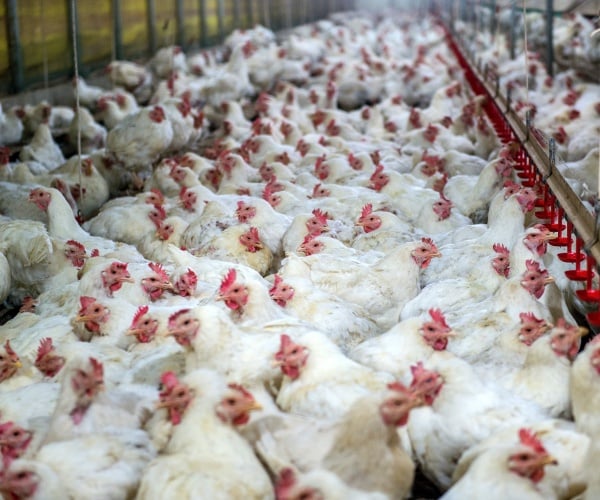[ad_1]
Experts warn that a bird flu pandemic may be right around the corner – and it has the potential to be 100 times worse than COVID-19. The avian virus was recently detected in a Texas dairy worker, the second-ever human infection in the U.S.
It’s rare that the H5N1 avian flu virus affects humans, but in recent months it has been found not only in wild birds and poultry, but also in mammals, says the New York Post, leading experts to fear that widespread human transmission may be on the horizon if the virus continues to mutate.
A new, more virulent strain of the flu was detected in 2020 and experts warn that we are dangerously close to experiencing a pandemic that will eclipse COVID-19.
Specific human cases are now occurring around the world, says CBC.com, and Louise Moncia, an avian influenza specialist from the University of Pennsylvania, says her “worst fear” is that humans will become infected with the pathogenic avian flu.
The death rate in humans may be upwards of 50%, according to data from the World Health Organization. By comparison, COVID-19 currently kills less than 0.1% of infected people.
John Fulton, a pharmaceutical industry consultant for vaccines and the founder of the Canada-based BioNiagara who organized a recent panel of experts to discuss the dire situation, tells Newsmax that the current bird flu situation “appears to be 100 times worse than COVID-19 or it could be if it mutates and maintains its high case fatality rate. Once it’s mutated to infect humans, we can only hope that the [fatality rate] drops.”
“We need to tell the government to assist researchers so that we can span the knowledge gap of how bird flu can mutate to infect humans and other mammals. We need to help vaccine manufactures prepare for what could be a deadlier pandemic than COVID-19. I have been trying to sound the alarm for years,” says Fulton.
The dairy worker in Texas who contracted bird flu reported eye redness and was told to isolate. Other symptoms of the avian flu include coughing, body aches and fever.
Mandy Cohen, director of the Centers for Disease Control and Prevention (CDC), said that her organization is “taking this situation very seriously,” according to The Washington Post. “We have not seen avian flu in cattle prior to last week. That is new. It’s a reservoir for virus to circulate and potentially, change.”
Cohen assured that the risk of avian flu remains low to the public because the virus found in the cattle worker has not easily evolved to spread to humans.
However, if it does mutate enough to cause human infections, it could spread rapidly the European Food Safety Authority (EFSA) warned. “If avian A [H5N1] influenza viruses acquire the ability to spread efficiently among humans, large-scale transmission could occur due to the lack of immune defenses against H5 viruses in humans,” the EFSA said.
© 2024 NewsmaxHealth. All rights reserved.
